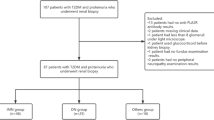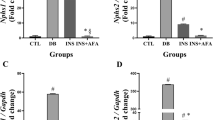Abstract
We first discovered autoantibodies to ACE (angiotensin converting enzyme) in patients with type 2 diabetes mellitus^1^. The antibodies were positive for 64.5% of the patients with diabetes and were positive in 83.3% in the early stage of clinical diabetic nephropathy. In addition, in genetically diabetogenic OLETF (Otsuka Long-Evans Tokushima Fatty) rats^2^, one of the characteristics of which strain is spontaneous nephropathy resembling those of human type 2 diabetes, and in control LETO rats^2^, immunization with rabbit lung ACE developed glomerulopathy similar to that seen in diabetics^3^. Also, in normal New Zealand white rabbits, immunization with the rabbit lung ACE induced glomerular changes similar to those seen in diabetic nephropathy^3^. In this study, renal tissues identical to those examined in research of diabetic nephropathy by PAS staining and electron microscope in preceding study^3^, were examined by immunostaining methods, only to prove that the diabetic glomerular changes may occur by immunization with ACE, not by non-specific responses to ACE, in non-diabetogenic rats and rabbits.
Similar content being viewed by others
Article PDF
Author information
Authors and Affiliations
Corresponding author
Rights and permissions
About this article
Cite this article
Nishida, S., Sasaki, T., Hirokawa, Y. et al. Spontaneous glomerular deposition of immunoglobulins for ACE (Angiotensin Converting Enzyme) induces spontaneous nephropathy in diabetogenic rats. Nat Prec (2009). https://doi.org/10.1038/npre.2009.3275.1
Received:
Accepted:
Published:
DOI: https://doi.org/10.1038/npre.2009.3275.1



